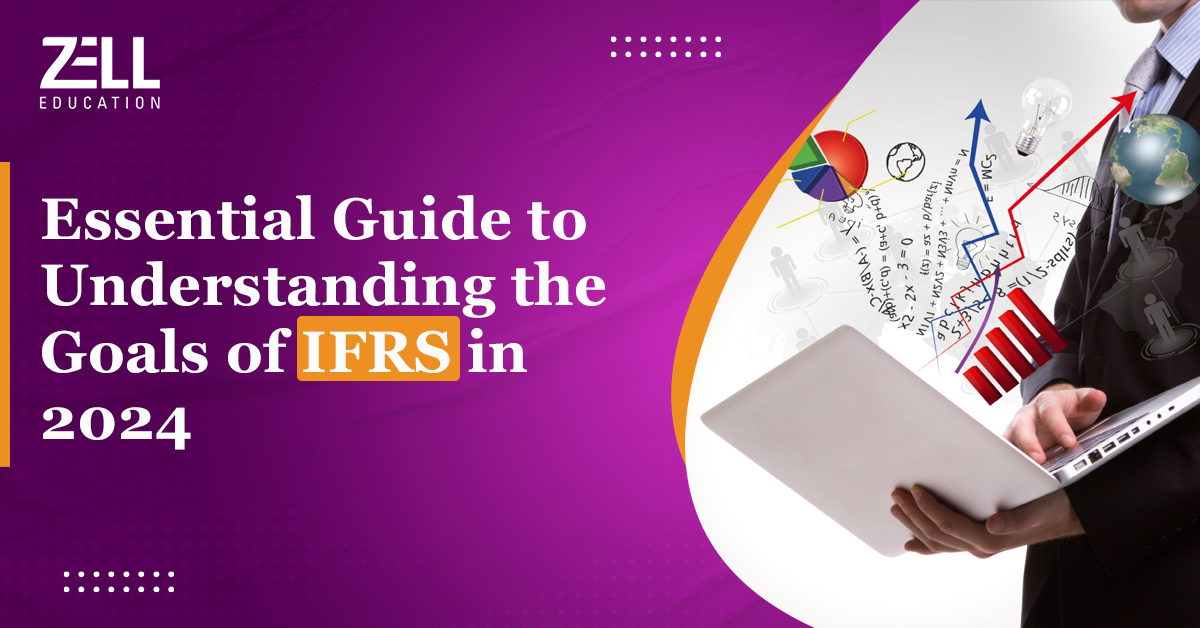Finance Professions That Have A Great Demand Overseas
If you love crunching numbers and talking money, you are probably thinking of pursuing a career in finance and accounting. In addition to developing valuable transferable skills, the field of finance will also expose you to several promising career opportunities. Since this field is a global business, it is one of the most popular choices of careers among students looking for opportunities to work in different countries. There are numerous career paths that are considered favourable if you are looking to work abroad. Some of them are described as follows:
Finance Career That Have A Great Demand Overseas
1. Accountants
Accountancy is one of the most popular career paths for commerce graduates. While becoming a Chartered Accountant (CA) might be your first choice if you plan on continuing your career in India, students looking to move abroad might want to check out the Association of Chartered Certified Accountants qualification. As a Chartered Accountant or an ACCA professional, you may be able to work in a variety of different finance verticals like consulting, fund management, taxation, etc. Another qualification that can help you land opportunities in different countries is that of a Certified Public Accountant (CPA). This certification is in line with the Generally Accepted Accounting Principles. Such professionals are hired in Big 4 companies like KPMG and Deloitte all over the world for impressive salaries.
2. Financial Manager/CFO
A Financial Manager or a Chief Financial Officer (CFO) is someone who specialises in financial reporting or cash management. Such professionals are required in smaller as well as larger organisations. In a relatively small company, a Financial Manager may be responsible for handling all the financial operations of the company whereas, in a larger organisation, a Financial Manager might specialise in certain areas of the financial landscape. Either way, a financial manager is a crucial part of any organisation. Such finance professionals have great demand overseas and can expect an average salary of USD 84,109 pa.
3. Financial Analyst
One of the most popular career choices for finance professionals is to be a financial analyst. In order to be a financial analyst, one must attain the necessary licenses from FINRA. In addition to these licences, if you want to enhance your resume, you can also get the CFA certification. Moreover, since CFA is an international qualification, it can help you find job opportunities across the globe if you are keen on working abroad. A financial analyst offers guidance to businesses about how they should be investing their money and also assess their existing financial situation.
4. Trader/Stockbroker
A stockbroker or a trader is a professional who buys and sells stocks, bonds or other financial instruments, either for themselves or on behalf of a firm. A usual workday of a successful trader can be quite hectic. So, if you are someone who loves to work in a fast-paced environment and can perform well under pressure, a career as a stockbroker might be right for you. However, in order to be authorised to make trades on behalf of someone else, a trader must have the appropriate Financial Industry Regulatory Authority (FINRA) licences. If you hope to eventually work for yourself, being a stockbroker is a great career path to choose. With a healthy clientele and knowledge about the market, a stockbroker can expect lucrative working opportunities all over the world.
5. Economist
Economists are responsible for analysing data to find trends and patterns about the current economic issues. This information needs to be portrayed in the form of charts, reports and tables. They can work in a wide variety of industries such as education, healthcare, and development. On an international scale, an economist can potentially work for a global company and help them figure out the demand for their products and services and ultimately increase their profits. In order to start your career as an economist, you need to have a four-year bachelor’s degree in economics, preferably from a renowned college or university. Getting some experience in economics and finance can help enhance your resume and land you a good job as an economist. You should also be able to keep up with the latest economic trends and make projections about what can be expected in the future.
6. Personal Financial Planners and Advisors
As you can probably deduce from the name, a personal financial planner is someone who can help individuals manage their finances and investments. Such planners and advisors are required to carefully monitor the finances of their clients, help them manage their portfolios, make investments and make long-term financial plans. In some cases, a personal financial planner may also work for a bank or an investment firm. A financial advisor usually has short-term business relationships with clients whereas a financial planner has to maintain their clients for longer periods of time. In order to be a financial planner, it is important to get the certification of Certified Financial Planner (CFP) before you start working. The best part about being a financial planner or advisor is that you can engage clients from all over the world if you are qualified to do so. Being a financial planner is a great way to get work opportunities in different countries.
7. Financial Examiners
Financial examiners are professionals that usually work for government organisations or private financial institutions. They look after financial records or loan documentation for their employers and look for the possibility of fraud or money laundering. You can pursue this career after getting a four-year degree in accounting. In some cases, graduation in any other field may be acceptable, but you will have to take a number of accounting classes to work for government organisations. For those who want to take their career a step further and explore opportunities abroad, getting a CPA licence can be quite helpful.
8. Risk Specialist
As the name suggests, a risk specialist is a professional who analyses potential losses or financial risks for insurance companies, firms, corporate lenders and banks. Generally, risk specialists analyse the risk to the earning potential of a company and the existing and future investments that are being planned. Such professionals need to have great mathematical and reasoning skills to be able to analyse and project the potential risks and problems that could be faced by a company. Ideally, a person can be a risk specialist with a bachelor’s degree but some bigger companies prefer to hire professionals with a business management degree.
9. Investment Banker
Someone who has completed their graduation and has studied subjects like finance and economics is eligible to get into the field of investment banking. An investment banker can be hired by private companies as well as private organisations, in order to look over bonds, stocks, mergers and acquisitions, and other financial aspects of the company. A normal workday of an investment banker is very fast-paced, so companies often look for people that are ambitious, driven and hard-working.
10. Actuary
Actuarial science is a field that deals with analysing and minimising risks to insurance, finance or other similar industries. They assess the probability of an unfavourable event occurring and analyse the potential financial impact it may have on the company. This profession requires individuals to hone their mathematical and statistical skills and to acquire a four-year degree in actuarial sciences, finance, or accounting. Moreover, you need to get the necessary certification from the Actuarial Society of the country you wish to work in.
Conclusion
The field of Accounting and Finance is full of opportunities for those looking to work abroad in the future. By getting the necessary certifications and gaining some relevant work experience in your field, a finance professional can easily find work opportunities in any country they desire. The Chartered Financial Analyst is a globally recognised qualification in the field of finance and investment. If you have recently completed your graduation or are appearing for your final semester, you may be eligible to become a CFA. Interested? We highly recommend checking out our Chartered Financial Analyst (CFA) course. To advance your portfolio and build professional skills, try Zell Education’s interactive courses that offer flexible training timings. Get in touch at +91 7208885600 or email us at [email protected].
FAQ
How do short-term courses in finance and accounting help?
To grow your career as a finance and accounting professional, it is important to keep improving your skills and getting additional certifications whenever you can. Short term courses are convenient because they can be taken by working professionals as well as students and can be completed in under a year. Zell offers a 9-month course about Finance and Accounting with lectures conducted online on the weekends.
What’s the duration of the Chartered Financial Analyst (CFA) course and its focal learning concepts?
The Chartered Financial Analyst (CFA) course should take approximately 2-3 years to complete. The exams are conducted at 3 levels and held every quarter. Students can expect to study subjects like Economics, Financial Reporting and Analytics, Ethical and Professional Standards, and many more.
Chartered Financial Analyst or Master of Business Administration, which is better for investment banking?
An MBA degree in Finance is only valuable when earned from one of the most reputed B-schools. However, if you are looking to start your career as an investment banker, then becoming a Chartered Financial Analyst (CFA) would be a better choice for you as compared to getting an MBA.









